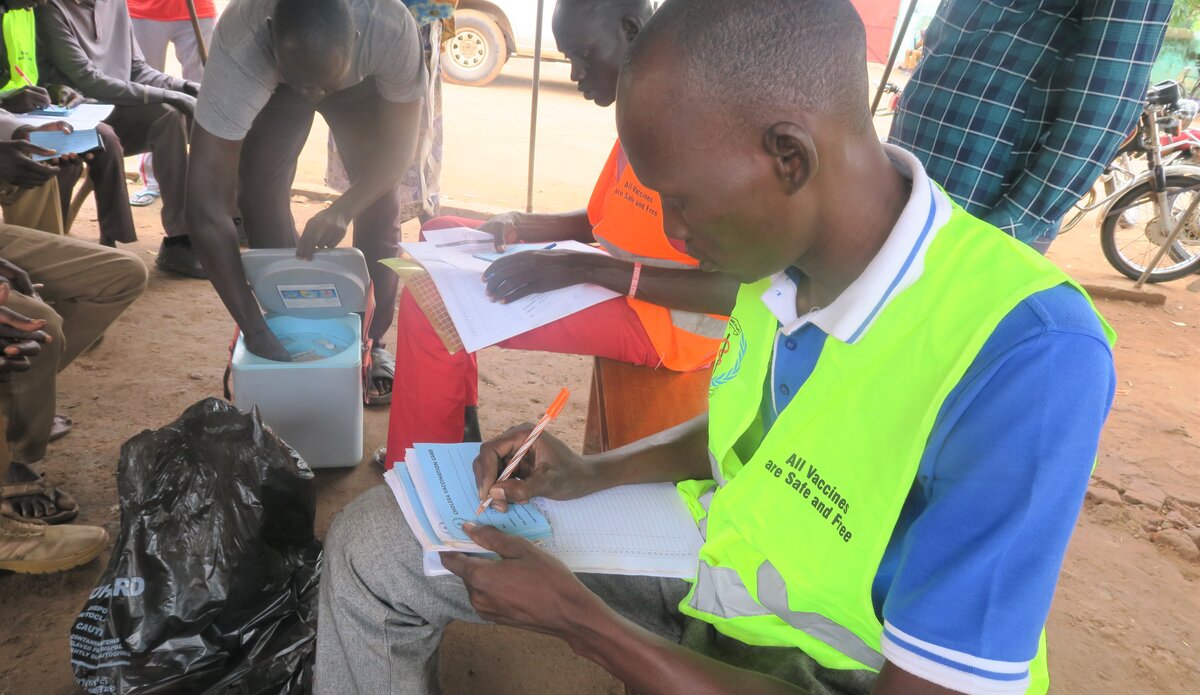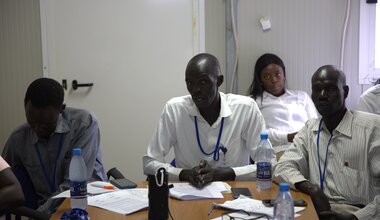UNMISS supports efforts to protect inmates from cholera at Aweil Central Prison
Across South Sudan, tens of thousands of inmates are crammed into overcrowded prisons with dire living conditions, including poor sanitation and limited access to food, clean water and healthcare. In some locations male and female prisoners are housed in the same cells due to a lack of space, creating safety concerns and the risk of abuse.
The Aweil Central Prison, in Northern Bahr El Ghazal, is not immune from this problem. Constructed with the capacity to house 150 inmates, it is now overwhelmed by more than 700 prisoners. In these conditions, disease can run rampant, particularly cholera, with more than 9300 cases already recorded in the region since the deadly outbreak began last year.
The United Nations Mission in South Sudan is responsible for monitoring prison environments, management, and the rights and wellbeing of inmates. After assessing conditions in the Aweil Central Prison, the mission’s Rule of Law team requested prison authorities and the State Minister of Health to prioritize health services.
“We advocated very strongly for improved hygiene and sanitation for the prisoners, and particularly requested improved disease prevention because, if cholera takes erupts in this closed environment, it would be disastrous,” said UNMISS Corrections Advisor, Amina Kavirondo.
As a result of this advocacy, all inmates and prison officers have now been vaccinated with the support of the World Health Organization and State Ministry of Health.
“Given the large number of inmates accommodated in such a crowded facility with dire living conditions, we were very worried about their exposure to disease and felt it was important to vaccinate the prisoners to prevent cholera taking hold,” said the Ministry of Health’s immunization manager, Philip Malong Thiel.
“We were afraid because of the rumors that there were already cholera cases in the prison,” says one female inmate. “I now feel prepared and protected after my vaccination.”
 UN
UN United Nations Peacekeeping
United Nations Peacekeeping




